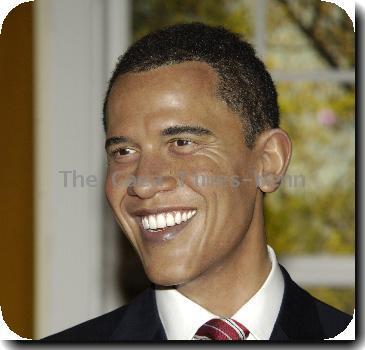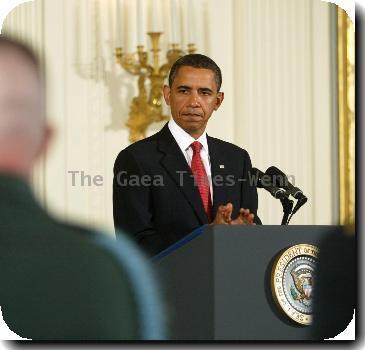US ambassador urges disputes with China be separated from cooperation on international issues
By Christopher Bodeen, APThursday, March 18, 2010
US ambassador urges China cooperation on Iran
BEIJING — Beijing needs to take seriously American concerns about the value of the Chinese currency, but bilateral disputes should not impede cooperation on global issues such as climate change and Iran’s nuclear program, the U.S. ambassador to Beijing said Thursday.
Washington and other trading partners are pressing China to ease currency controls that have kept its yuan steady against the dollar for 18 months to help their companies compete amid weak global demand.
A group of American lawmakers wrote to President Barack Obama this week urging him to press Beijing to loosen controls. The U.S. Treasury has the option of declaring Beijing a currency manipulator in a report due out in April, which could set the stage for a complaint to the World Trade Organization and possible sanctions on Chinese goods.
“This is a real concern for people in my country,” Jon Huntsman told students at Beijing’s elite Tsinghua University, citing high U.S. unemployment that critics say is exacerbated by an undervalued yuan.
“Many see the trading relationship with China as a little bit out of balance, partially because of the currency issue,” he said.
China insists the United States is responsible for bilateral tensions and Chinese Foreign Ministry spokesman Qin Gang responded to Huntsman’s comments by saying he hoped they would be “translated into concrete actions.”
Qin also lashed out at U.S. calls for yuan appreciation as a “bad example of protectionism that is detrimental to the recovery of the world economy.”
Huntsman said China would be wrong to view the currency issue as merely an American complaint, with the EU and other trading partners — and even the head of the International Monetary Fund — sharing such concerns.
He indicated U.S. officials would press China hard on allowing the yuan to appreciate in upcoming trade talks, and hoped to see “more flexibility on the exchange rate.”
China denies that its currency is undervalued, although many analysts expect the government will gradually allow the yuan to gain no more than 5 percent against the dollar this year while maintaining exchange rate controls. However, some speculate Chinese leaders might delay acting because they don’t want to be seen as giving in to American pressure.
The sharpening trade disputes come amid lingering Chinese anger over U.S. arms sales to Taiwan and a recent meeting between Obama and Tibet’s exiled spiritual leader, the Dalai Lama.
Hard-liners in the Chinese military have argued for punishing the U.S. by withholding cooperation on issues such as Iran and climate change.
However, Huntsman said such differences “cannot, must not, prevent the two countries from working together to create jobs, address climate change, and prevent Iran from developing a nuclear weapons capability.”
“To put our relationship on a more stable and mature footing, we have to delink our differences on bilateral issues from our cooperation on global issues, including nonproliferation,” he said.
China, which relies on Iran for much of its energy needs, has so far refused to agree to new sanctions on Iran to pressure it to suspend its uranium enrichment program.
Huntsman said China has much at stake in the debate over Iran, having imported more oil from Saudi Arabia last year to fuel its booming economy than the United States did.
“Tensions in the Middle East have an impact on the price of oil internationally and can adversely affect China’s development strategies,” Huntsman said.
China also needs to work with the U.S. on establishing verifiable targets for reductions in greenhouse gas emissions ahead of the next major climate conference in Mexico in late November, he said.
“As the world’s two largest emitters of greenhouse gases, we have a responsibility to lead the way,” Huntsman said.
China has resisted setting verifiable targets for emissions reductions and was blamed by some for the failure to reach a binding agreement at last year’s Copenhagen climate change conference.
Tags: Asia, Barack Obama, Beijing, China, Climate, East Asia, Environmental Concerns, Environmental Policy, Greater China, International Agreements, International Trade, Iran, Middle East, North America, Saudi Arabia, United States







